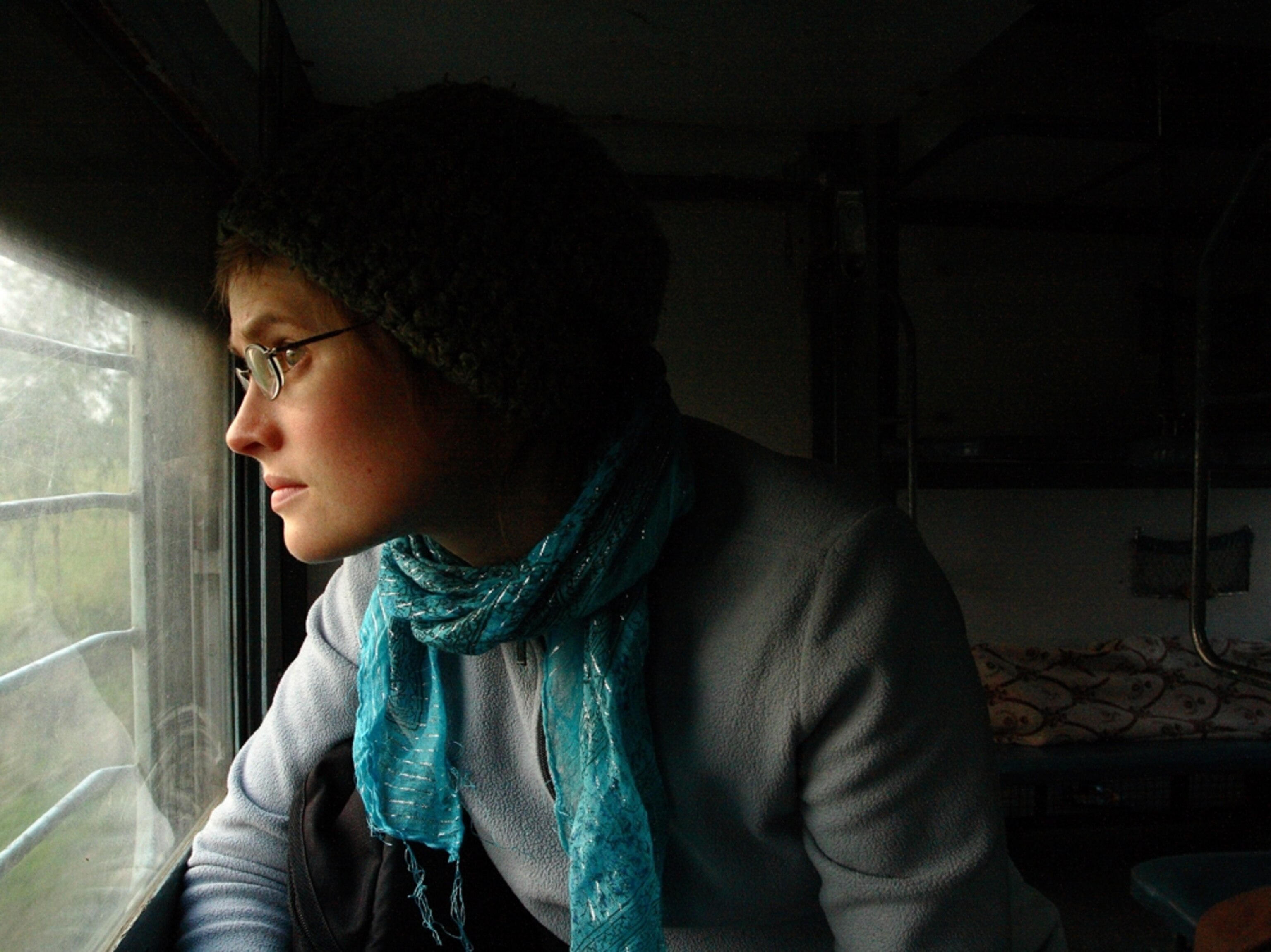
Parting Is Such Sweet Sorrow
Real Travel
From the May/June 2010 issue of National Geographic Traveler
I am staying in a seaside town in southern India that is practically a textbook definition of bliss. Yoga on the beach—check. Fuchsia- and tangerine-tinted sunrises—check. Bungalow with thatched roof—you've got it.
I've just spent two hours lying on my back on a wooden table, breathing slowly, while two women poured a thin stream of warm oil in careful spirals over the "third eye" on my forehead. My sarong, freshly laundered, sports a lingering fragrance of sandalwood.
But as I sit at a nearby café sipping the juice from a green coconut, I'm not feeling blissful at all. Actually, I'm having a minor meltdown.
The ticket in my hand states that I have a reserved lower berth, "Second class, A/C," on a train leaving Friday for Madurai, one of my favorite Indian cities. I know the details of my reservation well, since it took some work to arrange—a two-hour taxi ride into a nearby city followed by a chaotic press through a sweaty crowd of other would-be train travelers at the station. I'm lucky: I got the last berth reservation available this week.
It's time to go, I know. I've hung out in the sun long enough here that wonder has faded into routine. The first morning after I arrived, I meandered down the dirt road of a nearby village, pausing to look at everything along the way. I poked into shops, bought neem oil soap and bags of chickpeas toasted with cumin, and chatted for hours with the shopkeepers. But the villagers are no longer novel to me and I'm no longer a novelty to them. Dogs that used to bark and snarl when I passed now run up to me, tails wagging. All the signs are telling me: Move on.
Still, the idea of packing up, leaving behind the dogs, the yoga on the beach, the chatty shopkeepers, and the spectacular sunrises puts my stomach in a knot. Even after thousands of miles and hundreds of trips, there is one thing that completely fazes me whenever I travel to a place: the leaving of it.
Arrival, not departure, is the dominant theme of travel. We travelers are supposed to go forth, and forward—exploring, discovering, having marvelous adventures along the way. This is the narrative that runs through hundreds of years of travel literature, from The Canterbury Tales to The Great Railway Bazaar.
Yet as my own real-life travels unfold, I find myself thinking less about my comings and more about my partings. Arriving somewhere is easy. Separating from a place you have settled into, a place whose culture and people you have gotten to know, a place you've grown attached to—that's complicated. How do you decide when to depart? What do you take with you, and what, if anything, do you leave behind?
I have searched in vain for a literature of leaving. These traveler's feelings of mine seem to find their most beautiful expression in songs that, interestingly, are all by Canadians (does Canada have a cultural edge on farewells?). Joni Mitchell's "Urge for Going," Kate McGarrigle's achingly lovely "Talk to Me of Mendocino," Ian and Sylvia's "Four Strong Winds." Each of these expressions of parting is pretty much guaranteed to make me weep; the letting go of a place may well be the most emotionally intense thing I do when I travel.
Leaving a place gradually, thoughtfully, and with time to let the mixed emotions settle in your heart is a luxury, I know. It can only happen when you're traveling without (too much) time pressure and on an open-ended schedule—and how often does that happen these days? The slow, emotionally laden departure really belongs to a bygone era when travel was difficult and less certain and travelers had to set aside weeks, even years, for their journeys.
- National Geographic Expeditions
Nowadays we don't have to fret about when and how to leave a place because departures are no longer very open to negotiation. Once you buy your tickets, the decision has been made: You have to go. The flight leaves at 9:25 p.m. sharp; check-in is at least two hours earlier. And if you want to change your reservation, you will have to pay a $300 fee. Modern travel gives us certainty and well-defined timetables—and sucks all of the sentiment out of our departures.
Maybe that's a good thing, for if we went through a fraught, protracted farewell each time we traveled, we probably would not have the fortitude to travel at all. A friend of mine says she is almost relieved when, after a packed ten days of exploring every backstreet in Berlin, Paris, or Rome, it is time to head to the airport. "By that point I'm depleted," she says. "As for saying goodbye...I guess I don't."
Sometimes I too am a no-goodbye (and even a "thank goodness I'm outta here!") traveler. Although what usually happens when I'm forced to cut and run is that I go through my departure discombobulation when I've arrived back home. For almost a week after returning to New York from my first trip to Bali I felt depressed, didn't want to leave my apartment, and couldn't sleep. Jet lag, I thought. But now I wonder if jet lag really is our inner traveler trying to process the renegade emotions that don't know where to go when we don't get to experience that long, measured leave-taking.
In India I allow the restless, disturbing urge to bolt flow over me then ebb back again, like the soft waves on the beach. The following two days I skip through the village with the now-devoted dogs, buy more cumin-spiced chickpeas from the chatty shopkeeper, inhale the sandalwood scent of the laundered sarongs, change my plans several times. Gradually, gradually my inner sea calms, and what comes next is easy. A few hours before another fuchsia-hued sunrise, while the shops are still shut and the dogs still sleep, I fold this lovely place into my heart and catch the train to Madurai.







